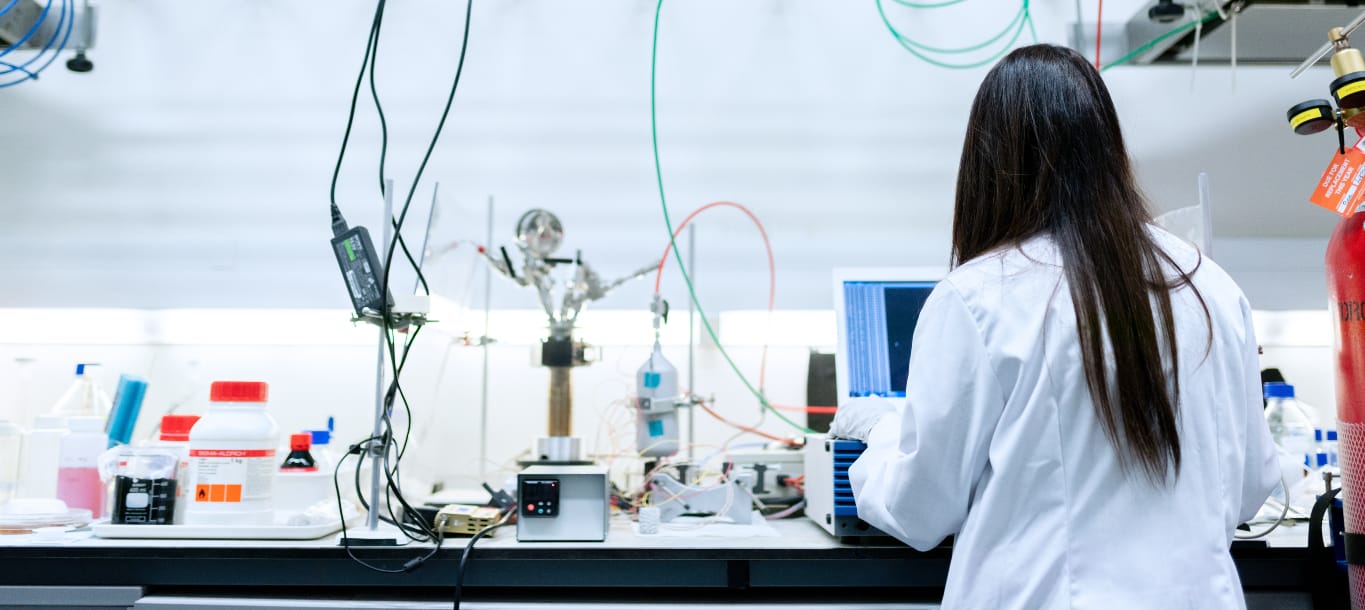What is a scientist?
A scientist is someone who conducts research into scientific phenomena, in order to learn more about the universe. Science itself refers to the study of the structure and behaviour of the physical and natural world through observation, experimentation and testing of hypotheses.
Scientists specialise in an area of science they’re passionate about (we’ll delve deeper into this later), and conduct research to learn more about this area. They’ll work in a lab or university that conducts research in their area of interest.
Then, based on the trends scientists notice during their research, they come up with a hypothesis (theory) about the universe. Scientists then test these hypotheses through experiments, and analyse the resulting data. Based on the data, scientists accept, reject or modify the hypothesis, or even the experiment itself if it was flawed. Then, scientists repeat the experiment until the hypothesis aligns with the data. Finally, scientists share their findings with the scientific community and the general public. These findings could lead to further research, a new way of understanding the universe, or even the cure to a deadly disease.
What are the responsibilities of a scientist?
Exact responsibilities vary depending on speciality and seniority, but they typically include:
- Writing research proposals and requesting funding
- Designing and conducting experiments
- Analysing experimental data
- Developing new products based on the results of the experiment
- Presenting research results in scientific journals or academic conferences
What areas of science can I specialise in?
One of the exciting things about being a scientist is that you get to delve deeper into an area of science you’re passionate about. Thus, unlike your time at school, your career will be tailored to your unique interests.
Science specialities can be divided into three main areas: physical science, earth science and life sciences.
Physical science
Physical science is the study of the properties of non-living things. Physical scientists are interested in the structure and properties of inanimate objects, and how this can be used to inform our understanding of the universe. Careers in physical science include: medical physicist (using physics theories to improve medicine), nuclear physicist (developing new ways of producing nuclear energy) and astrophysicist (studying the physics of space)
Earth science
Earth scientists study the earth, its waters and its atmosphere. They’re interested in its structure and properties, and how it’s evolved and will continue to evolve over time. Careers in this sector include meteorologist (making predictions about the weather), planetary geologist (using physics to help us understand outer space) and environmental scientist (studying the effect of human activity on the environment)
Life science
Life science refers to the study of living things: from plants to animals and even microorganisms. Career options in life sciences include: forensic scientist (analysing evidence from crime scenes to help solve crimes), virologist (studying viruses to prevent outbreaks and infections) and food scientist (studying the properties of food to develop safer, more nutritious products).
What skills do I need to be a scientist?
Curiosity is a key skill, as this curiosity will drive your interest in conducting further research. Problem solving is also valued, as you’ll need to adapt and refine your hypothesis and experiment design. Finally, project management is needed, as you’ll be in charge of the smooth running of an experiment. Project management skills will also come in handy to help you prioritise different tasks.
How do I become a scientist?
One common misconception is that you need to go to university to become a scientist. While one way to become a scientist is through completing a science degree and postgraduate qualification (like a PhD), you can also complete an apprenticeship. The Level 7 research scientist degree apprenticeship allows you to gain hands-on experience as a scientist, while studying towards a fully-funded qualification.
You can also work your way up from a career as a research assistant (studying for a PhD part-time); this opportunity allows you to make valuable connections within the field and take time to decide if this is the right career path for you.
